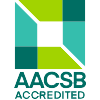The Rutgers Professional MBA
Developing Executives Who Drive Change

Gain An Edge, Leave Your Mark.
Gain An Edge, Leave Your Mark.
The Rutgers Professional MBA (PMBA) program is the MBA for working professionals or executives who seek to drive change. It gives you the tools to hit the ground running in pursuit of the next phase of your career. From one of the region’s top business schools, the PMBA program provides you with the skills and knowledge you need to maximize your full potential and set yourself apart in the business world.
Our 21-month PMBA program will teach you how to:
- Evaluate all aspects of a business
- Define problems and articulate effective solutions
- Manage people
- Negotiate
- Resolve conflicts
- Think globally
Upcoming Events and Info Sessions
More Information
For more information or guidance through the application process, contact Bev Ballard at beverbal@camden.rutgers.edu / 856-225-2980.
International Students: Please note the Professional MBA does not meet the guidelines for full-time international student requirements. Consideration for admission to the PMBA requires U.S. citizenship or a residency visa allowing students the ability to travel outside of the United States during a required trip as part of one of their classes. International student candidates seeking an MBA should consider the Rutgers Online MBA for non-U.S. residency or the On-Campus MBA for anyone wishing to study in the United States.
A Cutting-Edge Curriculum
The 21-month, hybrid Professional MBA curriculum blends traditional MBA courses with current global business and world issues. You will analyze emerging global trends, from data-driven analytics to managing conflict and negotiations. The result is the perfect mix of business fundamentals and 21st century innovations. It’s what sets the Rutgers–Camden PMBA program apart from other MBA schools for working professionals.
Orientation and Course Format
Orientation and Course Format
Orientation and Course Format
The PMBA cohort starts with an Orientation Weekend event, including a Welcome Dinner, workshops, and the development of a success plan for each student. Classes commence the weekend following Labor Day.
The 42 credits are completed in seven sessions over 21 months. Sessions 1-3 and 5-7 are 11 weeks long offered in a hybrid format (alternating in-person Saturday classes with fully online learning in the odd numbered weeks). Session 4 is dedicated to two online electives of your choice, taken during the 12-week summer session, offering students maximum flexibility during the summer!
Financial Management
Valuation as the unifying principle of Finance. Topics include forms of business ownership, firm and project cash flows, time value of money, bond and stock valuation, capital budgeting, operating and financial leverage, risk and diversification, and the cost of capital.
Business Analytics
Managers, regardless of their functional responsibilities, make decisions that are driven by data and analysis. This course will help in development of important skills in data analysis and modeling. Through rigorous and guided exercises, students will gain the ability to synthesize pieces of analyzed information to make better decisions. A combination of theoretical and practical mathematical and software tools will be used. In addition to regular lectures, the course will employ computer exercises, case analysis, discussions and team presentations. Special emphasis will be on making the results/decisions end-user-friendly.
Foundations of Leadership and Teamwork
This course is designed to help students acquire foundational knowledge and skills related to understanding, predicting, and changing human behavior and processes in and around organizations. Students will learn how to apply theoretical concepts to master real-world challenges and become more effective leaders. Topical coverage includes, but is not limited to, leadership models and theories, job attitudes, employee motivation, group/team dynamics, decision-making, organizational climate and culture, diversity, and individual differences, such as perceptions, attitudes, and personality. Discussion of these topics includes reflections on societal issues and ethical decisions leaders face. The content of this core course is critical for all who are in or aspire to be in leadership roles and provides a foundation for the more-focused courses of the Strategic Leadership concentration.
Accounting for Managerial Decisions
The course covers the accounting systems designed to help management in decision making. Planning (budgeting) and control systems, various product and service costing methods, and cost analysis for pricing replacement, outsourcing, quality and other management decisions are emphasized. Performance evaluation of product lines, divisions, and the firm as a whole including balanced scorecard and incentive systems are also covered.
Marketing Management
Addresses marketing frameworks and decision tools for developing products and services that deliver value to customers; segmenting the market and selecting target markets; and designing and implementing the best combination of marketing variables to carry out a firm’s strategy, including product, price, promotion, and distribution decisions.
Operations and Supply Chain Management
This course provides the foundation for managing the operations of both manufacturing and service organizations. Topics include operations strategy, product and service design, inventory management, facility and capacity planning, forecasting, quality management, supply chain management, and just-in-time operations.
Two Courses-Online Summer Electives-Student Choice
Financial Reporting and Analysis
This course will teach you the skills relevant to credit analyses, lending decisions, security analyses, investment decisions, and other decisions that rely on financial data. This will include analysis, understanding, and interpretation of financial statements along with learning simple skills and methods for making common sense out of the elaborate financial statements and financial reports prepared according to existing accounting standards and conventions.
Managing in the Global Economy
Introduction to the context of international business. Overview of the economic, ethical, cultural, legal, and political issues that affect operations in the global arena. Discussion of various trade theories, trade barriers, and trade agreements. Modes of entering foreign countries. The study of multinational corporations in terms of their strategies, structures, human resources, and operations. Various regions of the world are explored through case studies.
Conflict Resolution and Negotiation
This course examines the theories and practices of negotiation and conflict resolution. It acquaints students with the processes and contexts of negotiation and decision making paradigms. With an emphasis on negotiation and mediation, this course gives the students familiarity with a wide range of dispute resolution processes, both in theory and practice through the use of experiential exercises.
Investments and Portfolio Management
This course will serve as an introduction to the process of investing from a point of view of a portfolio manager as well as an individual investor. During the semester, you will develop an understanding of the tools used in modern investment theory and practice, as well as gain a better understanding of the risk and limitations of even the most thorough investment analyses.
IT Strategy and Project Management
Information technology (IT) is an important driver and enabler of the dramatic transformation of the business landscape. This course is designed to provide future managers with a fundamental understanding of the key IT issues for effective decision making on IT initiatives and investments, and manage the IT assets of an organization. Both managerial and technical aspects of IT management are discussed. Case studies and hands-on assignments reinforce the concepts and current business practices.
Strategic Management
Provides a top management view of the firm. Students analyze the internal and external environments of firms, develop strategy, and work out its implementation. Emphasizes teambuilding and verbal presentation skills. Improves understanding of diverse critical industries and mega-trends.

The Rutgers School of Business–Camden, including all its undergraduate and graduate programs, is accredited by the Association to Advance Collegiate Schools of Business. Why is this important? Because it ensures that schools maintain rigorous quality standards, which are recognized by top employers worldwide.
Alumni Highlights
The PMBA was instrumental in my approach to systematically resolve problems. In turn, my aptitude for analyzing information has led to an Assistant VP role at Wells Fargo.

Wells Fargo
The program provided a diverse perspective and challenged me to think outside the box. Prior to earning my PMBA, I managed a region that did $20M in sales annually. Since completion, I now manage $150M+ business nationally.

a Hewlett Packard Enterprise Company
The incredibly diverse group of faculty and students empowered me to be innovative and economical when problem-solving. They propelled me to realize my dream to make a strong societal impact, by leading teams to establish new benchmarks for revenue and service.

Bank of America
I am able to use the knowledge I have acquired and skills I have honed to empower and inspire others. The PMBA has helped me on my quest to become a global contributor of good values to humanity.

nVIAsoft Corporation
I am extremely satisfied with completing the Rutgers PMBA program. Receiving the masters degree helped me to gain more confidence, get a new project management job and expand my professional network. I highly recommend the Rutgers PMBA program.

Developing Executives who Drive Change
- Flexibility: Alternating in-person Saturday/weekly asynchronous classes over a 21-month accelerated degree program.
- Global Reach: The PMBA cohort International Business Course comprises a nine-day trip to emerging nations, where you will hear from top executives from some of the largest corporations in the country.
- Tuition Perks: Tuition includes meals during in-person classes, international travel, and more.

Sample PMBA Saturday Schedule
Sample PMBA Saturday Schedule
The hybrid classes alternate between in-person Saturday classes with fully online learning in the odd numbered weeks. In-person sessions have the following schedule, excluding the fully online summer schedule.
8:00am—11:45am
Morning classes
Morning class - including a
mid-morning break.
11:45pm—12:45pm
Lunch
Hot catered lunch offered on-site to alow the students to network and brainstorm coursework instead of leaving for lunch.
12:45pm – 4:30pm
Afternoon class
Afternoon class - including a
mid-afternoon break.
Put Yourself in World Class Company
Show the world what you can do. Your Rutgers School of Business-Camden Professional MBA degree is the key to unlock your full career potential.
Our PMBA graduates are regularly recruited for key leadership roles in many of the world’s most prestigious and forward-thinking organizations.
Here are some of the top employers for our MBA students.
Here are some of the top employers for our MBA students.
Here are some of the top employers for our MBA students.
Here are some of the top employers for our MBA students.
Johnson & Johnson Company
Prudential
Sanofi Pharmaceuticals
BOA/MERRILL Lynch
Educational Testing Services
Lockheed Martin
Merck & Co, Inc.
State of NJ
EMC Corporation
Rutgers
Wells Fargo Bank
TD Bank
AtlantiCare
Automatic Data Processing
Bayada Home Health Care
Bristol Myers Squibb
Celegene Corporation
Comcast
Federal Aviation Administration
Galaxo Smith Kline
JPMorgan Chase
Lockheed Martin
Trac International
UMDNJ
US Army
USAF






A Home-Grown Focus, with Global Reach
One of the most rewarding aspects of the PMBA program is our International Business Environment Course and International Residency. Its centerpiece is a nine-day trip overseas to emerging countries, like Argentina, Brazil, Chile, China, Colombia, Peru, Portugal, Spain, Sweden, Turkey, and Vietnam, where you will get the chance to meet with executives from up to ten international corporations to learn challenges they currently face.
